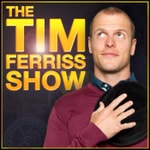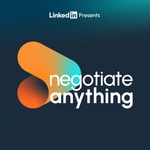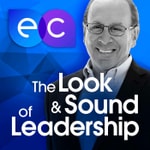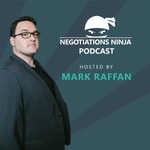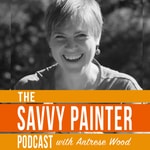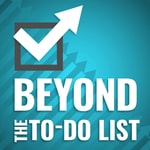Where Work Meets Life™ with Dr. Laura – Details, episodes & analysis
Podcast details
Technical and general information from the podcast's RSS feed.
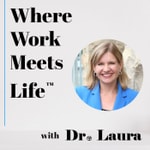
Where Work Meets Life™ with Dr. Laura
Dr. Laura
Frequency: 1 episode/16d. Total Eps: 111

Recent rankings
Latest chart positions across Apple Podcasts and Spotify rankings.
Apple Podcasts
🇨🇦 Canada - careers
29/06/2025#90🇨🇦 Canada - careers
28/06/2025#56🇨🇦 Canada - careers
22/06/2025#92🇨🇦 Canada - careers
18/06/2025#78🇨🇦 Canada - careers
22/05/2025#46🇨🇦 Canada - careers
21/05/2025#53🇨🇦 Canada - careers
06/05/2025#98🇨🇦 Canada - careers
05/05/2025#41🇨🇦 Canada - careers
04/05/2025#15🇨🇦 Canada - careers
03/05/2025#11
Spotify
No recent rankings available
Shared links between episodes and podcasts
Links found in episode descriptions and other podcasts that share them.
See all- https://munkdebates.com/
445 shares
- https://brenebrown.com/
443 shares
- https://www.headspace.com/
405 shares
RSS feed quality and score
Technical evaluation of the podcast's RSS feed quality and structure.
See allScore global : 68%
Publication history
Monthly episode publishing history over the past years.
Three Brutal Types of Toxic Bosses
Season 4 · Episode 90
mardi 27 août 2024 • Duration 19:21
Dr. Laura’s exploration into the topic of toxic bosses continues in this episode. During her extensive research on the subject of toxic bosses, she learned a great deal that she is compelled to share and is writing a book based on her findings set to publish in 2025. Her research is continuous and each insight she gains is passed on to listeners in these solo episodes. This time Dr. Laura instructs on how to identify three specifically brutal types of toxic bosses, detailing how they operate and what they are looking to gain.
The first persona Dr. Laura identifies is that of a dishonest manipulator. Bosses of this type are inherently dishonest people and create an environment of mistrust in their team due to chronic lying. The second persona of a toxic boss is that of a great divider. This type prefers to cause dissension and conflict in their teams by pitting people against each other. And the third persona identified is the unethical corrupter. This boss lacks integrity to the point of corruption. They’re not just dishonest, they’re corrupt and unethical. Dr. Laura breaks down the mindset and actions of each type of toxic boss, explains how they will attack and undermine us, and gives straightforward advice on how to handle their toxicity.
“People are not at their best when they're reporting to a toxic boss. In fact, it depletes their energy. It depletes their creativity and innovation. They live in a state of fear with high anxiety, and their self-esteem and confidence get eroded over time.” Dr. Laura
About Dr. Laura:
Dr. Laura Hambley Lovett is a work and career psychologist and thought leader on the evolution of work. She has always been fascinated by how work intersects with life and loves to use her expertise to improve organizations and help people thrive. Her passion for taking creative ideas and launching them into successful business strategies led her to start three counselling psychology practices (Calgary Career Counselling, Canada Career Counselling, and Synthesis Psychology), as well as six different business brands offering organizational assessment and consulting services.
Dr. Laura is honoured to have been selected as a Woman of Distinction in Canada in 2014 and received a Canadian Woman of Inspiration Award as a Global Influencer in 2018.
Resources:
Learn more about Dr. Laura on her website: https://drlaura.live
For more resources, look into Dr. Laura’s organizations:
The Great Disconnect: Inability to Listen and Its Impacts on Workplaces
Season 4 · Episode 89
mardi 13 août 2024 • Duration 43:31
Dr. Laura welcomes Oscar Trimboli, award-winning author, podcast host, and global expert on listening, to the show to talk about listening and how our inability to listen properly is hurting us at work and beyond. Oscar worked extensively in marketing and technology in his career and has a lot of experience in consulting with organizations, all of which give him great insight into the way people listen, or don’t listen, to each other and how to change that.
Oscar traces his work in listening back to a boardroom in 2008 where he was challenged by the CEO’s statement to him: “If you could code how you listen, you could change the world”. He explains that the difference between hearing and listening is action. His new book, How to Listen, addresses research on the subject of listening as well as guidance into listening to what is said and not simply our interpretations of what we hear. Dr. Laura and Oscar discuss different ineffective listening styles that people often fall into and Oscar’s tips on how to improve listening. Oscar’s insight will resonate with everyone who hears this episode and challenge us to really listen, and not just hear, what he’s saying.
“So please just be conscious that you can improve your listening simply by asking people one extra question, or simply by knowing that the word listen and the word silent have exactly the same letters. So if you just wanted one tip from our conversation today, that would be it. … Therefore just be silent just a little bit longer and you'll be surprised. That breath they've taken doesn't mean they've finished what they're saying. They're just collecting their thoughts.” Oscar Trimboli
About Oscar Trimboli:
Oscar Trimboli is an author, host of the Apple award-winning podcast Deep Listening and a sought-after keynote speaker. Along with the Deep Listening Ambassador Community, he is on a quest to create 100 million deep listeners in the workplace.
Through his work with chairs, boards of directors, and executive teams, Oscar has experienced first-hand the transformational impact leaders can have when they listen beyond words. He believes that when leadership teams focus their attention and listening, they will build organizations that create powerful legacies for the people they serve – today and, more importantly, for future generations.
Oscar is a marketing and technology industry veteran working for Microsoft, PeopleSoft, Polycom, and Vodafone. He consults with organizations, including American Express, AstraZeneca, Cisco, Google, HSBC, IAG, Montblanc, PwC, Salesforce, Sanofi, SAP, and Siemens. He is the author of how to listen – discover the hidden key to better communication – the most comprehensive book about listening in the workplace, Deep Listening – Impact beyond words and Breakthroughs: How to Confront Assumptions
Oscar loves his afternoon walks with his wife, Jennie, and their dog Kilimanjaro. On the weekends, you will find him playing Lego with his grandchildren.
Resources:
Website: OscarTrimboli.com
Oscar Trimboli Podcast: Deep Listening - Impact beyond words
“how to listen: discover the hidden key to better communication” by oscar trimboli
Oscar Trimboli on LinkedIn
“The Square and the Tower: Networks and Power, from the Freemasons to Facebook” by Niall Ferguson
Learn more about Dr. Laura on her website: https://drlaura.live
For more resources, look into Dr. Laura’s organizations:
The 4-Day Workweek: The Future or a Fad?
Season 4 · Episode 80
mardi 9 avril 2024 • Duration 38:15
Dr. Laura welcomes Joe O’Connor, co-founder of the Work Time Reduction Center of Excellence, to the show to continue exploring the topic of the 4-day workweek. Joe originally served as CEO of 4 Day Week Global, the company co-founded by the last episode’s guest, Andrew Barnes. Joe and Dr. Laura explore the 4-Day workweek in great detail, examining both myths and truths about the four-day week and looking at the future of this global movement.
Joe O’Connor points out that the adoption of the five-day workweek and eight-hour workday over a century ago was driven by major technological advancements. Yet more recent technology, such as the internet, email, and digital communication, haven’t shifted that structure despite gains in productivity. Joe and Dr. Laura discuss significant research that supports shifting to a 4-day workweek and Joe dispels common myths that prevent companies from considering the change. Joe addresses the flexibility of this possible structure, trusting and empowering employees, and why company leaders need to course correct in order for the change to work. Their conversation provides yet more eye-opening evidence that points to variations of the 4-day workweek as a compelling choice for the future of workplace productivity and wellbeing.
“... we often advise leaders that are looking at this to think about it in terms of by the time you push the button to move to a shorter workweek, so by the time your trial starts or you've introduced the policy, you really want to have figured out to a pretty significant extent what are the things that we need to change in order to make this work operationally. You don't want to be doing those things after you've already started the trial. You don't want to be figuring it out, kind of building the aircraft while it's in flight.” Joe O’Connor
About Joe O’Connor:
Joe is CEO and co-founder of the Work Time Reduction Center of Excellence, a consulting and research organization based in Toronto, which specializes in shorter workweek models and reduced-hour, outcome-focused working. Internationally acclaimed as one of the leading experts on the shorter workweek, Joe developed the world’s first pilot program for the four-day workweek in Ireland at the onset of the pandemic in 2020. In collaboration with Boston College and University College Dublin, he codesigned a pioneering research project to measure the impact of the pilot. As CEO of 4 Day Week Global throughout 2020 and 2021, he expanded this model to lead the large-scale, heavily publicized trials of the four-day week in the UK, North America, and Australia. In this role, he supported hundreds of organizations and thousands of employees to shorten their work hours and optimize their productivity. Joe also led a research project on work-time reduction as a visiting research scholar at Cornell University.
Resources:
Website: WorkTimeReduction.com
Joe O’Connor’s 2023 reading list
4-Day Workweek joint research study by Josh Bersin Company with The Work Time Reduction Center of Excellence
“Work-Life Bloom” by Dan Pontefract
Learn more about Dr. Laura on her website: https://drlaura.live
For more resources, look into Dr. Laura’s organizations:
Sponsor For This Podcast:
This episode is brought to you by The improve it! Podcast with Erin Diehl, a top 1% global podcast.
Are you ready to transform your life through laughter, lifelong learning, and a little bit of improv magic?
Well, get ready because The improve it! Podcast with Erin Diehl is here to add a dose of playfulness to your Wednesdays. Erin sits down with personal and professional development gurus to explore the pesky and beautiful aspects of life. They dive deep into the things that make us tick, laugh, and sometimes even cringe.
You can find The improve it! Podcast on Apple, Spotify, or learntoimproveit.com. Subscribe today!
The Four Day Week: A Panacea for Productivity?
Season 4 · Episode 79
mardi 26 mars 2024 • Duration 36:25
Dr. Laura welcomes author, entrepreneur, and pioneer of the 4 day week movement, Andrew Barnes, to the show to examine the benefits of his innovative 4 day work week movement. Andrew explains why he originally piloted a 4 day week and how that led to a global research program involving academics from leading universities. Would this benefit us? And in what ways would we realize that benefit?
Dr. Laura’s conversation with Andrew Barnes starts with the big question: how can fewer days lead to more productivity? Andrew first defines what productivity is before diving into how the 4 day week can change our work-life wellness. It’s clear from the statistics and research Andrew shares that the 4 day week is a viable alternative companies should be considering. Rather than reducing one’s pay to 80%, people are paid their full-time salary but complete their work over 4 instead of 5 days. This reduced workweek increases productivity and efficiency, leading us to have more control over our time, in turn improving our health and wellness. Dr. Laura and Andrew Barnes have a compelling discussion that will change the way we perceive work structure.
“So one of the most interesting pieces of research that we run is when we've had people on a four day week, and at the end of the pilot we ask them: how much do I have to pay you to go back to five days from four days? And about 15% say you just physically can't pay me enough, just not doing it. About another 15% will need a 75% pay rise. And then, you know, a large chunk of them are going to need about 50%. So what that says is that an employee values the time off at a higher price than you are actually paying for it.” Andrew Barnes
About Andrew Barnes:
Entrepreneur Andrew Barnes has made a career of market-changing innovation and industry digitisation leading and transforming companies in the United Kingdom, Australia and New Zealand. In 2018, he made international headlines across the world with an idea that he believed would raise productivity in the workplace, while also contributing to the personal wellbeing of his staff – a 4 day work week. Through his company – New Zealand's largest corporate trustee company, Perpetual Guardian – Andrew announced a 4 day week trial, with staff receiving an extra day off work, on full pay, each week. The trial was an undeniable success, sparking widespread international interest and winning a number of global awards.
Today, Barnes is considered the pioneer and architect of the global 4 day week movement. As co-founder of 4 Day Week Global with his partner, Charlotte Lockhart, they are conducting the largest ever trials, currently taking place across the UK, US, Canada, South Africa, Ireland, Australia and New Zealand. More than 250 companies around the world with over 100,000 staff are taking part in the trials to change their workplaces combined with a global research programme involving academics from leading universities including Boston College, Cambridge, Oxford and many more.
Additionally, in the last 4 years Andrew has worked with companies such as Unilever and has been part of the advisory process for close to a dozen country and regional governments who are all effecting change to the way their populations will work now and in the future. Recently he was recognised Introducing The Forbes Future Of Work 50 as a leader in workplace innovation.
Andrew and Charlotte’s vision is to provide a community environment for companies, researchers/academics and interested parties to be able to connect and advance this idea as part of the future of work. Through this work he is on the advisory boards of both the US and Ireland 4 day week campaigns and the board of the newly created Wellbeing Research Centre at Oxford University and is a founding member of the World Wellbeing Movement.
In 2019 he wrote The 4 Day Week book, as a how to guide for companies trying to reduce work hours and increase productivity.
Resources:
Website: 4DayWeek.com
Andrew Barnes on LinkedIn
“The 4 Day Week” by Andrew Barnes with Stephanie Jones
“The Worst Journey in the World” by Apsley Cherry-Garrard
Learn more about Dr. Laura on her website: https://drlaura.live
For more resources, look into Dr. Laura’s organizations:
Growing Through Discomfort to Thrive in Work and Life
Season 4 · Episode 78
mardi 12 mars 2024 • Duration 37:07
Dr. Laura talks with guest Sterling Hawkins, a keynote speaker and the author of “Hunting Discomfort”, about the possibilities inherent in working through our discomfort. Sterling shares a bit of his story, which started with amazing opportunities, and then plunged him into the depths of discomfort. He reveals how much he learned from that experience.
One of the things that spurred Sterling out of his ultimate low point was something his mother said, “the way out is through”. That piece of advice inspired him to move through the uncomfortable, the painful, and the embarrassment to get to the other side where things improve. Sterling took that advice, and all the experiences he pushed himself into after it, and channelled it into his book, “Hunting Discomfort”. He and Dr. Laura break down the five types of discomfort people experience and discuss how they can be used to one’s advantage. This episode is a look at how resilient we can be if we choose to embrace discomfort and push through it. It’s a key lesson with a success rate Sterling can personally attest to.
“...sometimes people hear ‘hunting discomfort’ or conversations about discomfort and they're like, Sterling, look at my career, my relationships, my bank account. I don't need to hunt discomfort, I'm surrounded by it. But my answer is always the same, which is if you're surrounded by discomfort, you're not hunting it, you're living with it, you're placating it. You're rationalizing why you have to live with those things in your life. When I'm talking about hunting discomfort, I'm talking about getting to the source, the root of what's driving that discomfort, and freeing yourself from that place that leaves you forever and permanently free.” Sterling Hawkins
About Sterling Hawkins:
Sterling Hawkins is out to break the status quo. He believes that we can all unlock incredible potential within ourselves, and he’s on a mission to support people, businesses and communities to realize that potential regardless of the circumstances.
From a multi-billion dollar startup to collapse and coming back to launch, invest in and grow over 50 companies, Sterling takes that experience to work with C-level teams from some of the largest organizations on the planet and speaks on stages around the world.
Today, Sterling serves as CEO and founder of the Sterling Hawkins Group, a research, training and development company focused on human and organizational growth. He has been seen in publications like Inc. Magazine, Fast Company, The New York Times and Forbes.
Based in Colorado, Sterling is a proud uncle of four and a passionate adventurer who can often be found skydiving, climbing mountains, shark diving or even trekking the Sahara. Maybe you’ll even join him for the next adventure – and discover the breakthrough results you’re looking for. He’ll have your back, #NoMatterWhat.
Resources:
Website: SterlingHawkins.com
Book: “Hunting Discomfort: How to Get Breakthrough Results in Life and Business No Matter What” by Sterling Hawkins
“The Presence Process” by Michael Brown
Learn more about Dr. Laura on her website: https://drlaura.live
For more resources, look into Dr. Laura’s organizations:
Preventing Burnout In Our Lives
Season 4 · Episode 77
mardi 27 février 2024 • Duration 15:00
In a companion episode to Dr. Laura’s last episode on burnout (E73), she addresses what we need to know to identify and treat our burnout. Rather than talking to workplaces about how to prevent burnout in employees, this episode is all about us as individuals. What does burnout look like? What contributes to it? And what can we do about it? How do we help ourselves?
Dr. Laura first defines burnout as “a syndrome resulting from chronic workplace stress” which means that personal and relationship stress, though impacting burnout, do not define the syndrome. She explains that mental health is on a continuum on which four main stages of depletion exist. We start off Healthy, move into Reacting, then if our needs are not addressed we enter into the Injured stage until, finally, we are deeply unwell in Illness. Each of these stages of burnout comes with increased mental and physical symptoms that must be recognized. Dr. Laura shares her insight on how we start to feel, the things we start to give up, and the ways in which we become ill. She explains how we need our work lives to foster our mental wellness so we can avoid burnout and mental illness in general.
“I want to leave you with the fact that there is a way to address burnout once it happens, once you reach that end stage of burnout and you just feel a lack of energy, cynical, like you're not good enough, there is a way to get well again. And that burnout is not your fault. Oftentimes it's the organizational conditions you're in. It's the overload. It's the brutal boss that you're working for. It's the unhealthy team dynamics that are grating and wearing away at you. So it's not your fault, but you have the power to get the help you need.” Dr. Laura
Note: If you wish to see the images Dr. Laura references, this episode can also be found on her YouTube channel here.
About Dr. Laura:
Bringing nearly 25 years of expertise as an Industrial/Organizational and Career Psychologist and pioneer in the future of work, Dr. Laura helps organizations evolve their cultures, and leaders and employees to thrive in their work and lives.
She shares her expertise through keynote speaking, the Where Work Meets LifeTM podcast, strategic career coaching, and writing articles and books.
Resources:
Learn more about Dr. Laura on her website: https://drlaura.live
For more resources, look into Dr. Laura’s organizations:
Leveraging Life Experience for Personal and Business Breakthroughs
Season 4 · Episode 76
mardi 13 février 2024 • Duration 37:41
Dr. Laura welcomes Soren Kaplan, bestselling author, founder of Praxie.com, and Columnist for Inc. Magazine, to talk about his latest book, “Experiential Intelligence”. Soren talks about the impetus behind writing his book and defines Experiential Intelligence, or XQ, as a key factor in the road to success, alongside Intelligence Quotient (IQ) and Emotional Intelligence (EQ).
Soren shares examples of experiences from his childhood that have shaped into skills he uses today to explain XQ. Experiential Intelligence, or XQ, draws on experiential elements that give us understanding and abilities beyond what simple intelligence and resumés can explain. How we have lived matters to who we are. Dr. Laura and Soren Kaplan dive into elements of his book, explore how people learn and grow, and detail how leaders and managers can learn to assess XQ when hiring. Soren’s insights offer a way to look at the whole of a person and what they bring to the table, as well as opening each of us up to discover skills and attributes developed from our experience to aid us moving forward.
“Usually we're talking about different assets other than emotions and IQ. We're talking about different attributes that we develop, usually based on our experience. And you and I were just talking about those experiences that we had in our home life that gave us practice doing certain things that give us these higher order abilities to navigate uncertainty or be resilient or understand group norms that exist underneath the surface of teams, whatever those things might be. And that's what I mean by experiential intelligence. It's your mindsets, your abilities, and really the know-how and skills that you develop over time through experience.” Soren Kaplan
About Soren Kaplan:
Soren Kaplan is a Wall Street Journal bestselling and award-winning author, a Columnist for Inc. Magazine, a leading keynote speaker, the founder of Praxie.com, and an affiliate at the Center for Effective Organizations at USC’s Marshall School of Business. Business Insider and the Thinkers50 have recognized him as one of the world’s top management thought leaders and consultants.
His latest book, Experiential Intelligence, reveals how life experience contributes to real intelligence on par with IQ (intellect) and EQ (emotional intelligence) and can be leveraged for breakthrough in leadership and innovation. Concepts from the book have been profiled in Harvard Business Review, Psychology Today, Forbes, National Public Radio, and other media.
Soren has advised and led professional development programs for thousands of executives around the world, including Disney, NBCUniversal, Kimberly-Clark, Colgate-Palmolive, Hershey, Red Bull, Medtronic, Roche, Philips, Cisco, Visa, Ascension Health, Kaiser Permanente, CSAA Insurance Group, American Nurses Association, and many others. He has lectured at the Harvard Business School, Copenhagen Business School, Melbourne Business School, Breda University in the Netherlands, and with other MBA and executive education programs globally. Soren’s debut book, Leapfrogging, was named “Best Leadership Book” and The Invisible Advantage received the “Best General Business Book” distinction by the International Book Awards. He has been quoted, published, and interviewed by Harvard Business Review, Fast Company, Forbes, CNBC, National Public Radio, the American Management Association, USA Today, Strategy & Leadership, and The International Handbook on Innovation, among many others. He holds Master’s and Ph.D. degrees in Organizational Psychology.
Resources:
Website: SorenKaplan.com
“Experiential Intelligence” by Soren Kaplan
“Leapfrogging” by Soren Kaplan
Soren Kaplan on LinkedIn
The Drive podcast
The Ezra Klein Show podcast
Making Sense podcast
Learn more about Dr. Laura on her website: https://drlaura.live
For more resources, look into Dr. Laura’s organizations:
Never Not Working: How Always-On Cultures are Bad for People and Business
Season 4 · Episode 75
mardi 30 janvier 2024 • Duration 35:48
Dr. Laura welcomes Dr. Malissa Clark, an associate professor of Industrial/Organizational Psychology from the University of Georgia, about workaholism and her upcoming book, “Never Not Working: Why the Always-On Culture is Bad for Business - and How to Fix It”. Dr. Clark defines modern day workaholism, and explains why it’s so detrimental to both individuals and businesses.
There is an aspect of workaholism that’s “like water to a fish”, according to Malissa Clark, which is that we are so immersed in work that we simply don’t notice it. She works to define workaholism and breaks it down into four main components: behavioral, motivational, emotional, and cognitive. Dr. Clark unpacks each of the components, which are detailed in her book, and talks about the research, interviews, and thoughts that she drew upon when writing “Never Not Working”. This episode dovetails nicely with the focus on remote and hybrid work that Dr. Laura focuses on, bringing work wellness and health into the forefront of discussion.
“...we synthesized all of the research on the relationship between level of workaholism and performance ratings. And we basically find no relationship. And that is including if they were rating themselves or the bosses were rating their performance… my research and other people's research continually shows over and over again that not only do we not find that relationship… but we find that workaholism is related to a whole host of other detrimental outcomes, such as workaholics tend to be sometimes not the best coworkers and bosses for a variety of reasons.” Dr. Malissa Clark
About Dr. Malissa Clark:
Malissa Clark is an associate professor of industrial/organizational (I-O) psychology at the University of Georgia, where she has been on faculty since 2013. Currently, Clark serves as associate head of the department of psychology and director of the Healthy Work Lab. She is a recognized expert on the topics of workaholism, overwork, burnout, and employee well-being.
Clark earned her Ph.D. in I-O psychology from Wayne State University, and her B.A. in organizational studies from the University of Michigan. She has received awards for her writing and mentoring, and her work has been funded by the National Institute for Occupational Safety and Health (NIOSH) and the Society for Industrial and Organizational Psychology (SIOP). In 2023, Clark was named a Fellow of SIOP, a status that recognizes unusual and outstanding contributions that have an important impact on I-O psychology.
Her first book, Never Not Working: Why the Always-On Culture Is Bad for Business—and How to Fix It, launches in February 2024. Clark’s work has been published in premier outlets such as Journal of Applied Psychology, Journal of Management, and Journal of Organizational Behavior. She serves on the editorial boards of Journal of Applied Psychology and Personnel Psychology and as action editor for Journal of Business and Psychology and Occupational Health Science. Clark is passionate about bridging the scientist-practitioner gap and advocating for healthier workplaces and worker well-being through her speaking and consulting. Her work has been featured on various podcasts and in outlets such as Time, US News and World Report, New York Times, and The Atlantic. She currently serves as a member of the NIOSH Healthy Work Design and Well-Being Council. In her free time, she enjoys spending time with her family and travelling.
Resources:
Pre-order “Never Not Working: Why the Always-On Culture is Bad for Business - and How to Fix It” by Malissa Clark (release date February 6, 2024)
Healthy Work Lab; Department of Psychology at the University of Georgia
“The 4 Day Week” by Andrew Barnes, Stephanie Jones
“Overwhelmed” by Brigid Schulte
Thriving at Work with Dr. Patricia Grabarek and Dr. Katina Sawyer podcast
Learn more about Dr. Laura on her website: https://drlaura.live
For more resources, look into Dr. Laura’s organizations:
The Mind-Body Cure: The Impacts of Chronic Stress and How to Reclaim Our Wellness
Season 4 · Episode 74
mardi 16 janvier 2024 • Duration 35:46
Dr. Laura talks with Dr. Bal Pawa about her book, “The Mind-Body Cure”, and her journey through the health field into her focus on integrative medicine. Dr. Pawa shares her story of being a physician and a patient on the same day after a car accident, and how that opened her eyes to an entirely new experience and perspective on medicine.
Dr. Pawa discusses the science and medical background that informs her book but stresses that she made it very digestible to anyone without that background. She talks about personal healing and learning to regulate our own nervous systems, a preventative model of medicine that she says is missing from our current healthcare system. Dr. Pawa teaches Dr. Laura a breathing exercise from her book, one that helps improve oxygen saturation in the lungs and calm the nervous system. Dr. Pawa’s knowledge and experience inform her message about the impacts of chronic stress and the importance of the mind-body connection. She shares her insight with as many people as possible in order to change lives.
“If 75% of our physical symptoms are attributed to chronic stress and anxiety - because of the hormones I talked about, cortisol and adrenaline - and if that's the case and the other 25% are viral, infectious, injury, well, then it behooves us to make sure we pay attention to what causes stress hormones.” Dr. Bal Pawa
About Bal Pawa:
Dr. Pawa has 30-plus years in the health field as a physician with a focus on Integrative Medicine and Women's Health. She obtained certification in Mind-Body Medicine at Harvard Medical School. She is also a Certified Menopause Clinician and has completed additional studies on Functional Medicine: Neuroplasticity, Gut, Brain, and Autoimmune disease.
Bal is a passionate advocate for bringing evidence-based medicine to the masses and empowering them with knowledge. She has been an invited speaker on radio, television, community events, and presented health lectures to corporations across Canada, the USA, and the UK. Her TEDx talk about the role of stress and anxiety on your health has nearly 1 million views. Dr. Pawa's, international best-selling book The Mind-Body Cure provides tools for self-care, as people struggle to reclaim their health. A Clinical Instructor at UBC Faculty of Medicine, Bal continues to inspire and mentor younger physicians.
Resources:
Website: DrBalPawa.com
“The Mind-Body Cure: Heal Your Pain, Anxiety, and Fatigue by Controlling Chronic Stress” by Bal Pawa
“Chronic Stress, Anxiety? You Are Your Best Doctor!” | Dr. Bal Pawa | TEDxSFU
Learn more about Dr. Laura on her website: https://drlaura.live
For more resources, look into Dr. Laura’s organizations:
Burnout Prevention: What Organizations Must Do
Season 4 · Episode 73
mardi 2 janvier 2024 • Duration 20:46
Dr. Laura addresses the topic of burnout in this episode, defining exactly what it is and describing the workplace symptoms that can contribute to it. Burnout is not a category of mental disorder or a formal medical diagnosis but instead a stress response to toxic and suboptimal working conditions. How can it be prevented? Dr. Laura shares her insight.
The quick fixes that organizations implement to combat burnout don’t proactively solve the problem. As good as a wellness program and yoga class can be, it won’t fix the root cause of employee burnout. Dr. Laura breaks down all the signs of a toxic workplace: the types of dysfunctional dynamics that directly contribute to burnout. She also explains how organizations can find out about those toxic symptoms in order to address them at the root. There is a responsibility on companies and leaders to eliminate the systemic issues leading to burnout so healthier and more productive workforces can be cultivated. Dr. Laura’s expertise in organizational psychology shines a light on how this might be accomplished.
“... basically burnout is a result of suboptimal working conditions. Too often we'll put the blame on the individual and we'll say, well, that individual, that person, they're just not coping very well with the workload. Or maybe they have a lot going on in their personal lives, and that's why they're burnt out. That's not actually the case. When we look at burnout, we have to put a lot of weight into the workplace situation that the person is finding themselves in ... ” Dr. Laura
Note: If you wish to see the images Dr. Laura references, this episode can also be found on her YouTube channel here.
About Dr. Laura:
Bringing nearly 25 years of expertise as an Industrial/Organizational and Career Psychologist and pioneer in the future of work, Dr. Laura helps organizations evolve their cultures, and leaders and employees to thrive in their work and lives.
She shares her expertise through keynote speaking, the Where Work Meets LifeTM podcast, strategic career coaching, and writing articles and books.
Resources:
Learn more about Dr. Laura on her website: https://drlaura.live
For more resources, look into Dr. Laura’s organizations:

